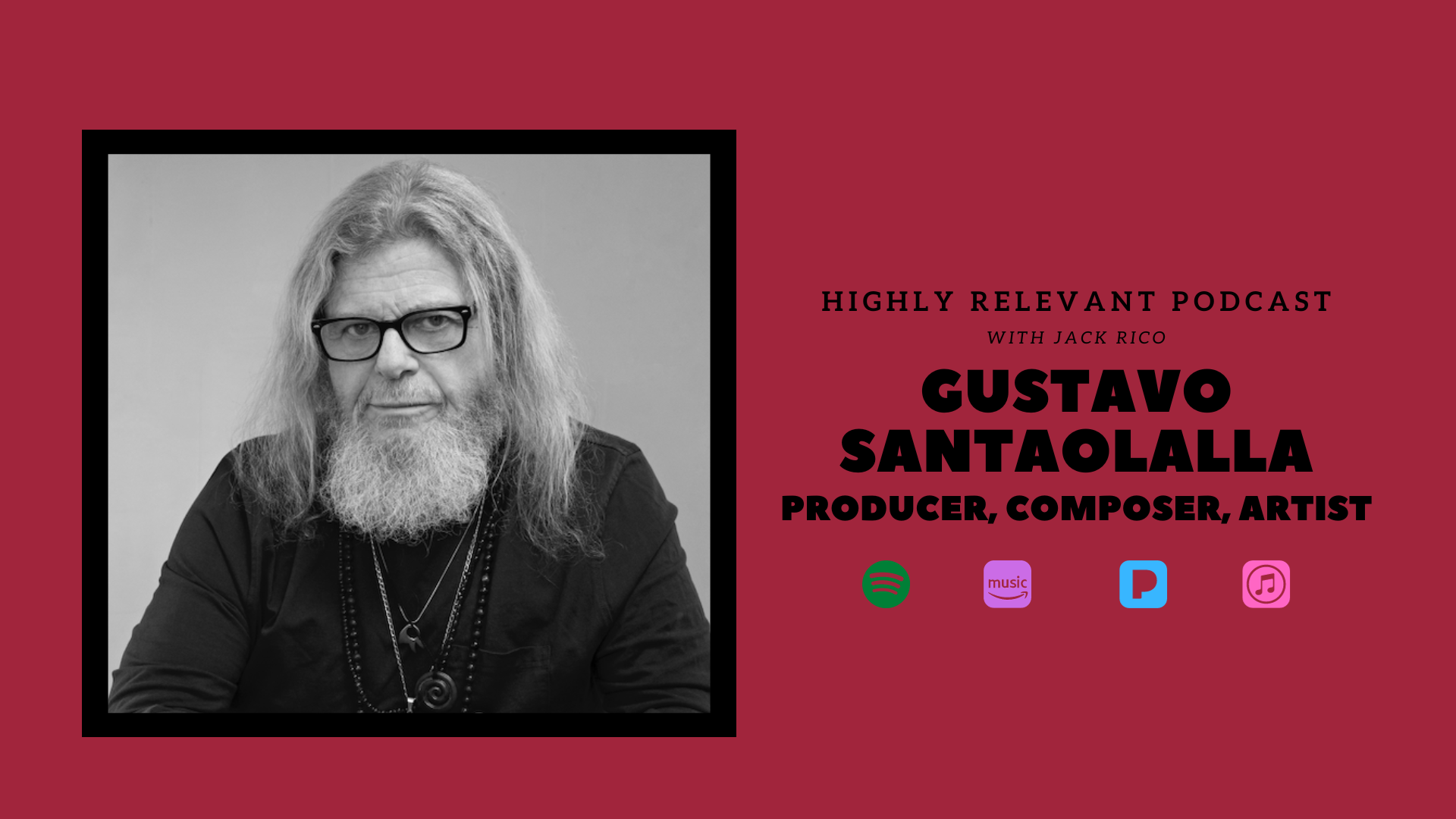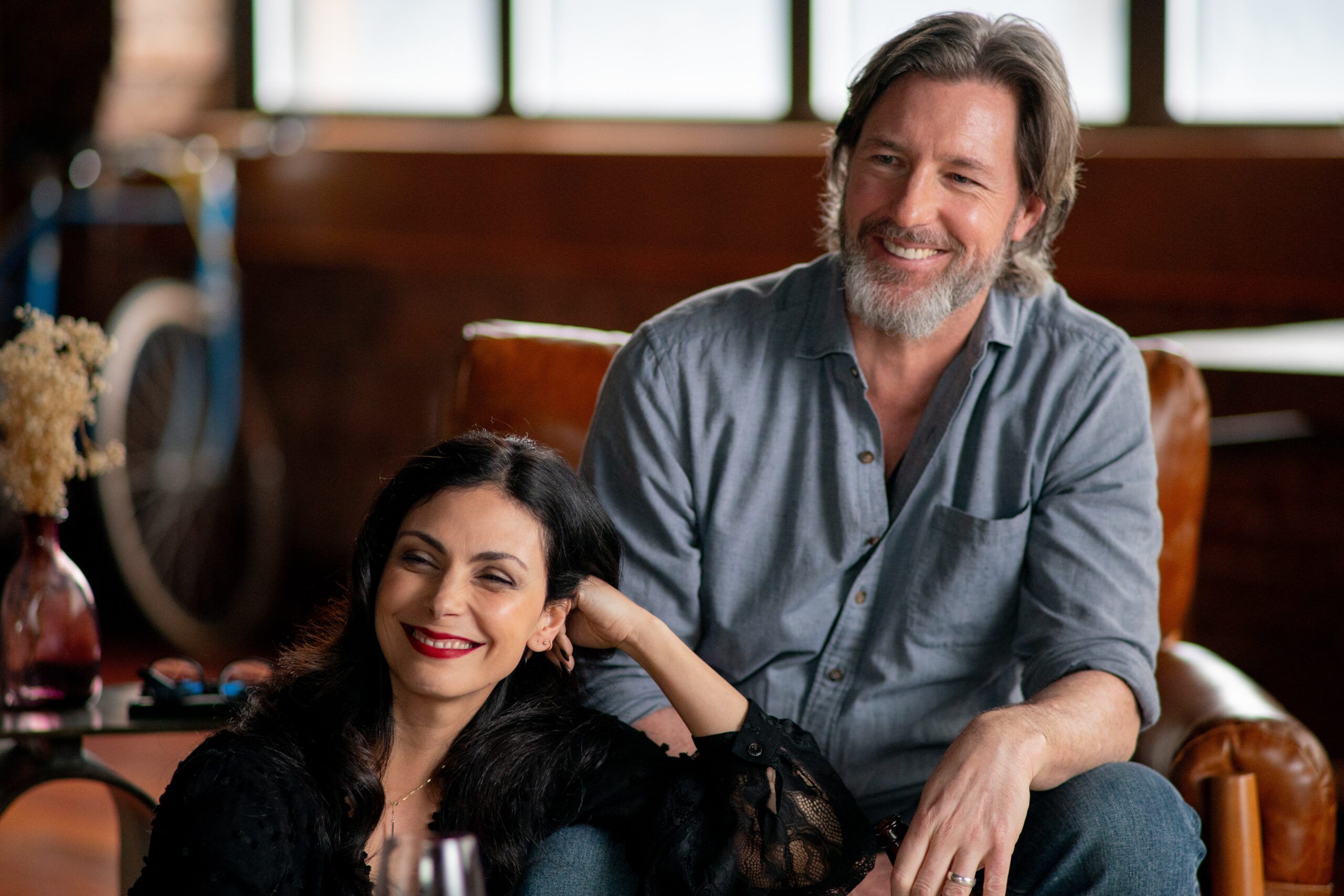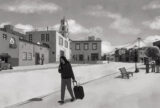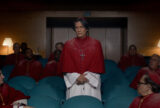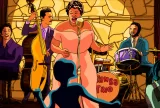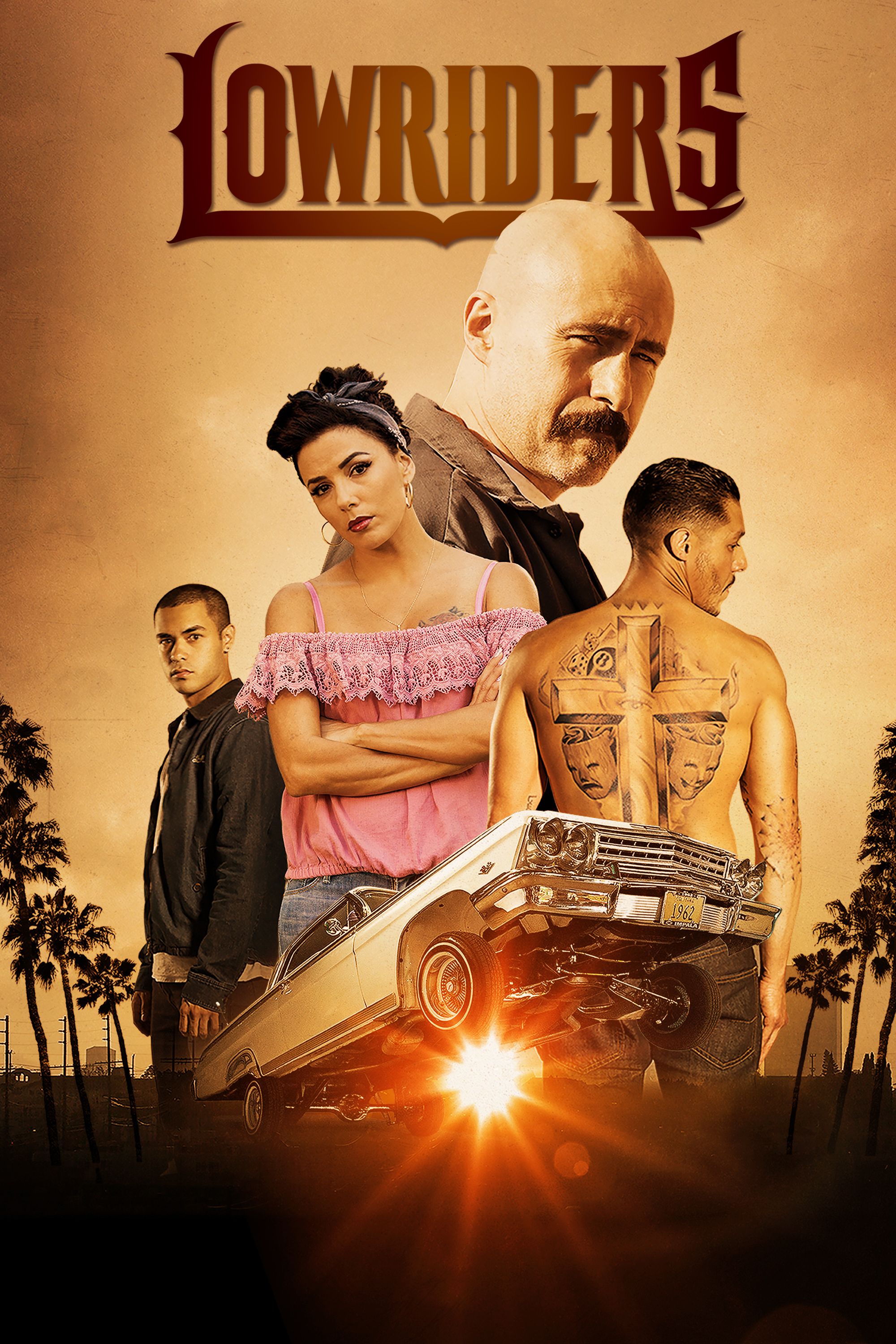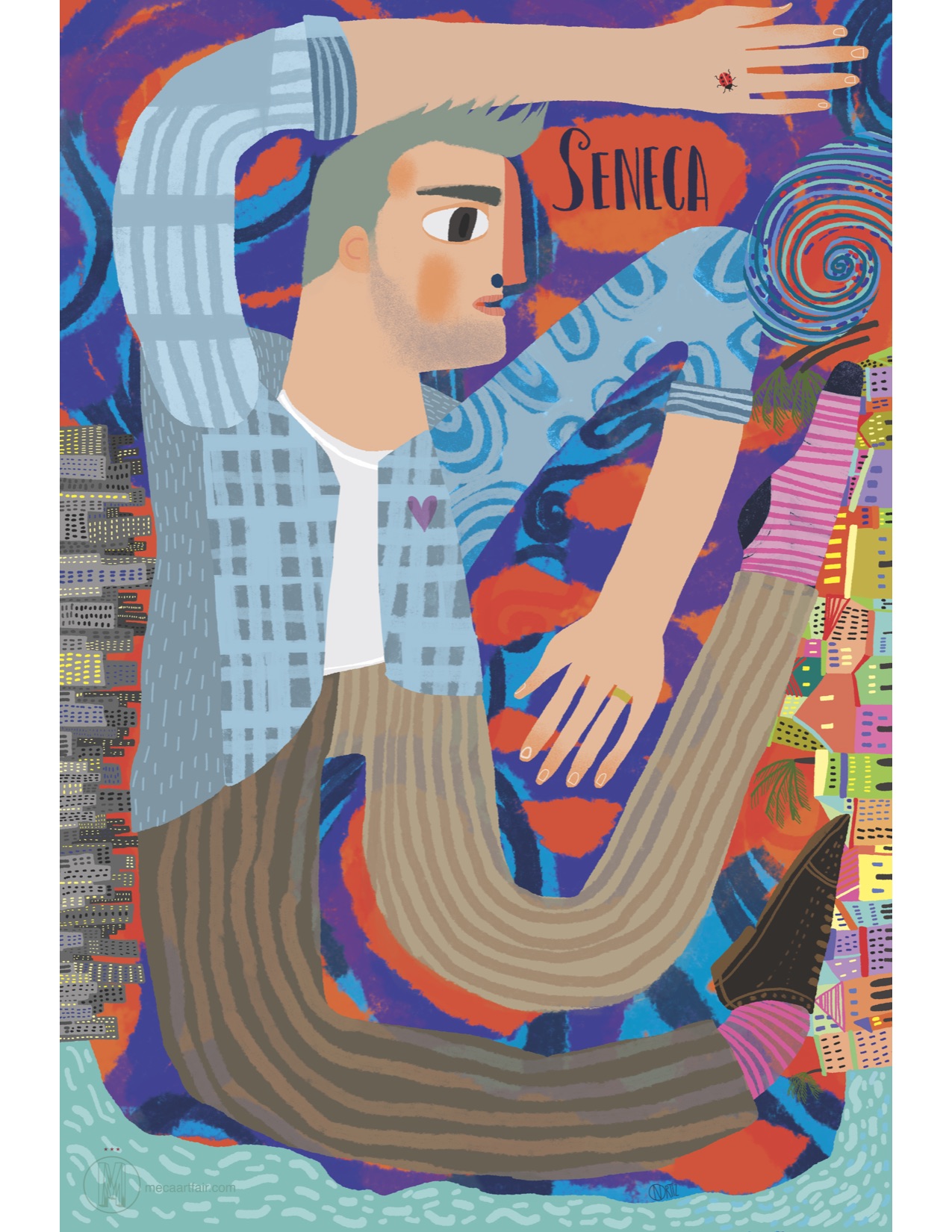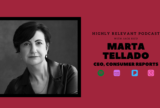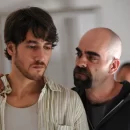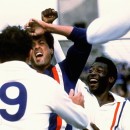09.17.2023 | By Jack Rico |
I once met Gustavo Santaolalla around 2012 at a PR office in Manhattan where I had the chance to speak with him briefly about music and a potential Broadway musical run for Guillermo Del Toro’s Pan’s Labyrinth. Flash forward 11 years later, and I am having a one-on-one with a musical legend who, as you will hear in my podcast interview, had a tremendous influence on my youth.
In this latest episode of Highly Relevant, Gustavo Santaolalla reinforces my belief in the transcendental power of music. The purpose of music isn’t meant to be just a commercial song featured in an Apple ad; it serves a higher purpose which we get into. We also addressed the philosophical divide between creators and corporations. His perspective on our world’s current state, both musically and societally, is a wake-up call for us as a country: it isn’t profits over people but the other way around. This two-time Oscar award-winning composer has recently been nominated for an Emmy for his original score for HBO’s “The Last of Us,” starring Pedro Pascal. This November, he will also receive the Latin Grammy Lifetime Achievement Award.
Our conversation serves as a powerful reminder of the profound responsibility that creators carry. Art, whether it is music, film, or a podcast, shapes our reality and offers an escape from the ordinary. Gustavo’s passion for music and his commitment to making the world a better place left me inspired, and I hope it will inspire you just as much.
Jack Rico: When you look back at your 50 years, Gustavo, and everything that you’ve done, what are the moments that most stand out to you, the ones you cherish most today?
Gustavo Santaolalla: Well, it’s a great question, but of course, the important moments were when my teacher quit on me when I was 10 years old. And that’s when I lost the possibility of learning any academic part of music because I was so involved in creating already by then that I always preferred to be playing than actually starting to read, write, or get the theory.
Another moment was the creation of my band, Arcoiris, which was another one when I signed my first record deal and started my career as an artist and as a producer at the age of 17, which you can find now on Spotify and also on vinyl in mono. That album is a blueprint of my career. In that album, you’re going to find the music for the movies, the songs, and the production tricks. We’re talking about a time when there were no synthesizers or things like that, and still, that album holds. Incredible.
Another moment was when I had to leave Argentina. Because of the political situation, I was tired of being jailed for no reason. Also, I was scared, you know, 30,000 people disappeared at the hands of the government. The other moment was coming to the United States and being totally bummed by the music scene at the moment because it was all, it wasn’t the music from the ’60s and the Woodstock generation and “we’re going to change the world,” it was corporate rock with bands like Boston, Kansas, and Styx. But then, The Ramones and The Pistols and The Clash and all these new things. I put together with Picnic, and that was another moment very important in my career.
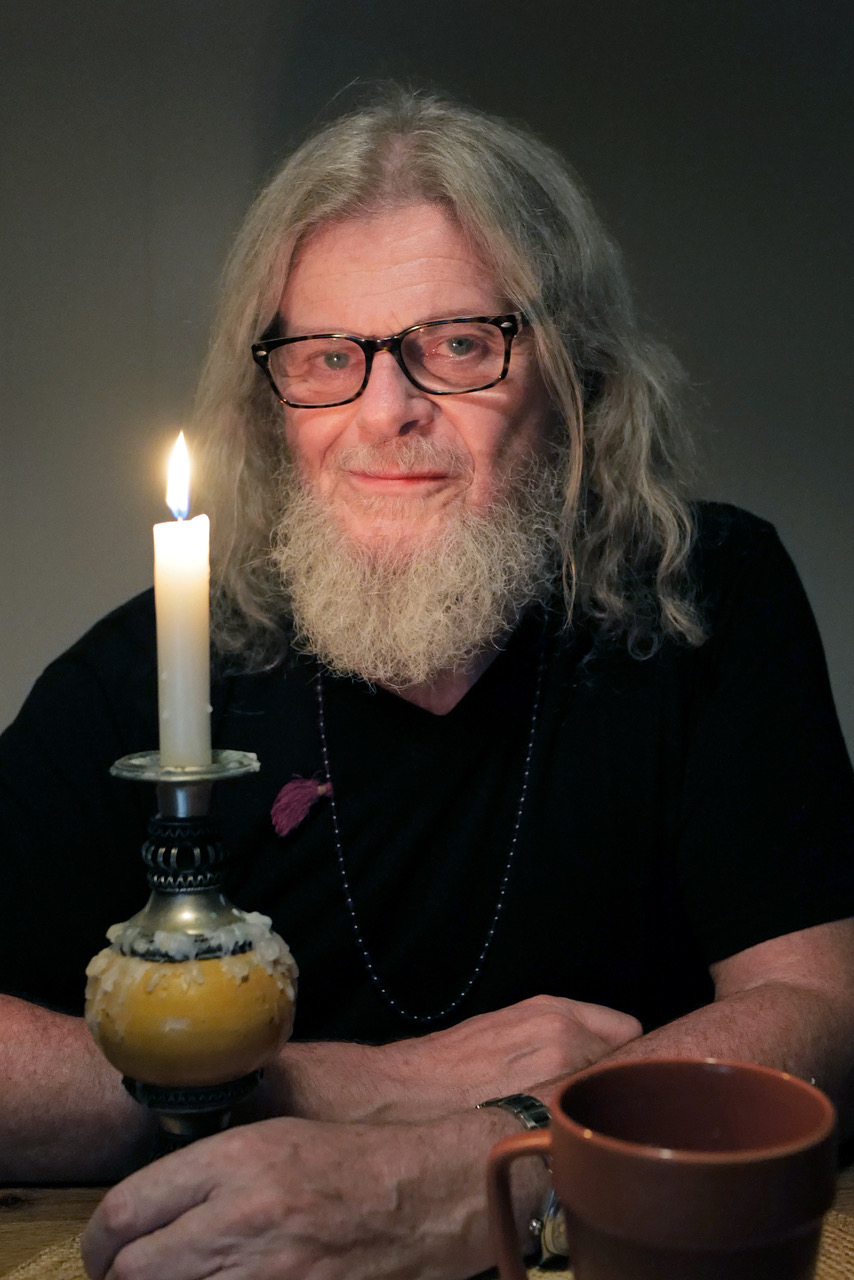
And then I went back to Argentina when democracy came and I did this incredible project called the Ushuaia Alakiaka. And I went from Tierra del Fuego to the border with Bolivia, recording rural musicians and taping them way before Buena Vista Social Club, way before world music, and with musicians who didn’t want to appear on TV or make records, musicians who did music because it was a way of coping with life. I did this with my brother, Leon Hieko; we did this project together. And that made me come back to the States and say, “I’m going to devote myself now to production.” And when I got out of the light, somebody took me to Mexico, and I saw what was happening there, the scene that was happening in Mexico in the mid-’80s, where the PRI fractured, el PRD appeared, when TV Azteca came, and then suddenly the monopoly of Televisa was sort of challenged, right? And when the ban on rock concerts in Mexico City was lifted, and then all this movement with bands like Insólitas Imágenes de Aurora that then turned into Caifanes and Maldita Vecindad, Café Tacuba, all this was happening. And it reminded me of those late ’60s, early ’70s in Argentina. And I said, “Man, I want to create a map of Latin American alternative music.”
And I went and produced Los Prisioneros in Chile, Divididos in Argentina, Maldita Vecindad, and then suddenly El Circo sold more than a million records. And then Café Tacuba, I didn’t have a label then, it took me a year and a half to get Café Tacuba signed to a label because they didn’t want to sign them, believe it or not. And then, Café Tacuba sold half a million records on the first album, and then the time to create the label came, and then we did that with my brother Anibal Kerper and engineer Antonio Pelusi; we created Surco. And then the first band that we signed was Molotov, and then we signed Juanes, and in the middle, I produced Bersuit, La Vela Puerca, and Arbol. And…
Those are the artists of my youth, Gustavo. It’s like the artists of this is who I grew up with. This is who I identified with. This is who shaped my culture. This is who shaped my musical preferences. That was your contribution to that music to us as a society. So for you, culturally, what does that mean? That megaphone is to be able to do that.
GS: It’s an incredible compliment because I always felt music as a service, as providing a service to the community. I always felt that somehow my role was affecting with this gift that I have that can be expressed in different ways through my songs, through my music, or through the music of other people that I help propose and perhaps take it to another level.
It’s funny when I met Jorge Gutierrez, the director of Book of Life and Maya and the Three, he told me, “Man, you did the soundtrack of my life.” I said, “I met my wife through a concert. I lost my virginity to Molotov. I got in a fistfight with my friends at a Maldita Vecindad concert. Concerts are the soundtrack of my life, man.”
It’s fantastic when you feel that somehow something that you’ve been involved in has affected people in that way because art is what keeps us sane. If we had to take reality as it is, as it is shown to us by the official narratives, we would be crazy. So art gives us the possibility of looking at life from a different angle, reorganizing reality in a different way that gives you hope or makes you cry or makes you angry, but it moves you, as opposed to this so-called reality that can get you into a sort of lethargic mode that will really drive you crazy.
So it’s creativity and art, music that moves you, any art, any painting, cinema that moves you at that level is what keeps us sane. I’m convinced.
You describe music almost as divine, as spiritual. Give me your thoughts on why you feel like that about music and when did you learn that you have the gift for that?
GS: Well, I started playing the guitar when I was five years old, and I actually very early felt a strong relationship between music and, obviously, the spiritual realm. I was raised Catholic, and I wanted to be a priest when I was a kid. I had my first spiritual crisis when I was 11, and I broke with the church, not because a priest misbehaved or anything, but because of philosophical questioning of matters that they called my parents and stuff, and my father, who was an incredible person, told me, “Listen, if you don’t feel it, you don’t have to do it.”
But my search continued. I led a monastic life between 18 and 24, really lived almost like a monk. I mean, I lived in a commune. We had the band Arcoiris, and music was all we did. We fasted once a week, we were vegetarians. In Argentina, at that time, people looked at us like we were crazy. They would say, “You don’t eat meat? Are you crazy? Is he alright?” And I’ve always been in that search, although I do have a voracious appetite for life, un apetito feroz por la vida. It has caused me some big indigestion, but I haven’t lost it. In my search, transit from different schools and different methods and stuff, but it is a big part of me, the spiritual search. I do believe in the power of consciousness, and I do believe that consciousness precedes matter. So the fact of trying to look for the mysteries of life is present in me all the time. And it’s nice that you have pointed that out.
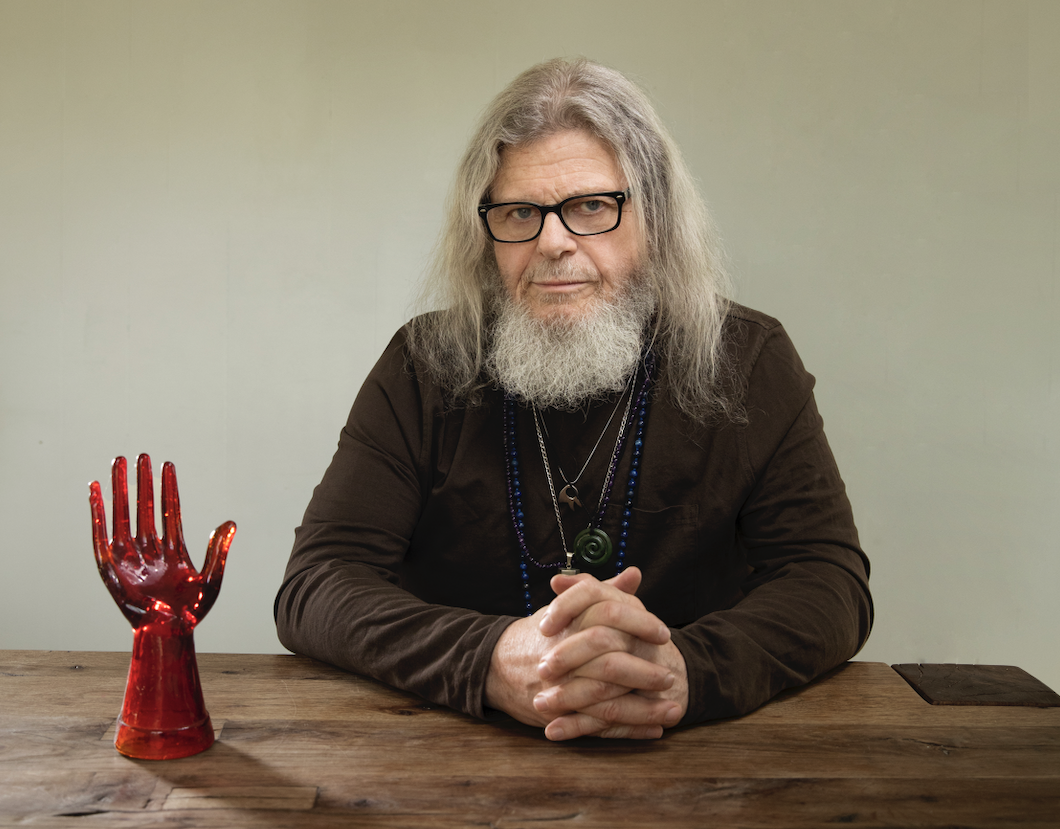
How do you then establish that spiritual side of you and music with the consumerist part of the business, the Academy Awards, status, and temptation? How did you wrestle with those two worlds colliding?
GS: Well, they shouldn’t wrestle or collide if you put them in the right place where they have to be. It’s just an award, just like in school when you get an award in school. It’s like that. I remember when I was first nominated for a Latin Grammy, my first nomination for an award like that, and I lost, and I probably thought, “This is it. I’ve worked so hard. This was a great opportunity, and it passed.” Okay, that’s it. Now I have 17 Latin Grammys, two Anglo Grammys, all the awards and stuff. But they came also at another moment in my life. They came later in my life, so I think I was much more ready. For example, I always felt that the first Oscar, was really for my career. It wasn’t just for ‘Brokeback Mountain,’ although I know it was a recognition of that. But for me, it represented how I got to ‘Brokeback Mountain,’ and this was because of all the other stuff that I had done.
What was really good for me was that I think the biggest competition is with yourself. So the second one [award] really gave me more tranquility than the first one. The second one, I really thought, “Man, you must be doing something that connects with the people in a very deep way.” I have never done anything for an award. Never. Or for money. Not that I don’t use money, and I don’t celebrate when I get an award because it would be foolish to say, “Oh, no, not at all.” Of course, I celebrate it, and it’s great, but I haven’t done something for that. I celebrate it, but in a way, it doubled my commitment to the things that I was a strong believer in, you know. I believe a lot in discipline and work. I don’t sit on a couch and wait until the light bulb goes on. There’s a Picasso phrase that is, “I hope inspiration finds me working.” I truly believe that, you know, it’s work. And sometimes, you get up, and boom, it’s there. Sometimes you go and play, and it’s a full day. And then, the next day, and then suddenly, boom, you connect, and you connect with something that is beyond you. So it would also be very selfish to lots of artists when they get the award, and this is one of the problems that you’re pointing to. They think that the award is for them. They’re giving it to them, but they’re not. They’re giving it to their work. El premio es a tu trabajo. But if you’re honest that that work represents also the work of other people, collaborators, people who collaborate with you, represents things that you brought from other projects, things that you learned.
You have to give credit to all those things you have to give credit to. For me, it is the divine, but for somebody else, it might be the inspiration for something that is not you. The moment you connect is not like five minutes before. Five minutes before, you couldn’t find anything; nothing was happening so it would be selfish to take all the credit for yourself, you know? Oh great, this award is for me. No. It is for the work. And if you keep that separated, it is much better. People don’t know how I am. So, the award is not for me; the award is for the work. You know, in the meet-and-greets or in the things they invite me to and stuff, is that there is that spiritual connection with the music that people really connect to on an emotional level.
With the music, with me, with my music, and with the productions in another way. But also, those records that have become iconic in our culture, in different countries with different artists and stuff, they also touch people’s hearts. And that, for me, is very important.
El poeta argentino Jorge Luis Borges dijo, “Yo no hablo de venganzas ni perdones, el olvido es la única venganza y el único perdón”. Is there an experience or critique in your career that you have chosen to forget in order to grow as an artist?
GS: Not really. I think I value every moment because what other people might consider a failure, un fracaso, I always felt like it was another lesson.
Para ti no existen los fracasos.
GS: No existen. For example, I had [music] records with faults. Some were perfect, but I already have accepted that imperfection is part of perfection. So you can let go. Don’t become so obsessed with something.
How long did it take you to get there?
GS: It took me years. For example, I’m going to tell you a really nice story. When I came to the United States, I told you about my disillusionment with the new music that was coming. Okay, I put together a tape with new stuff and new songs. And I sent it out, and click, click, click, click, nobody answered, nothing. One guy answered, wanted to meet me, get together, listen to the tape. I brought my guitar, I played some songs, and the guy said, “Eh, your music is great, your songs, you have a wonderful voice, but in every song, it seems that at a certain point, you seem to hit the wrong chord.” And I told him, “Well, listen, this probably means we’re not going to work together, but I got to tell you that I take this as a compliment because that point of inflection, I’m looking for that point of inflection. I’m looking for that.” So I take this as a compliment. So now we’re going to a big celebration for Neil Young, a dinner, an industry dinner. And somebody says, “Come on, I want to introduce you to this guy in the industry.” And it’s this guy, looking to do something with Bajo Fondo. So he wanted to do a collaboration with this guy he works with, and he knew I was Gustavo, “The Oscar Guy,” I said, “No. You don’t remember, but you had an office in this place. And 30 years ago, you told me something that has stayed with me since then.” And you could see the guy was worried. I mean, what did I tell this guy? He didn’t know, but I said, “I always took it as a compliment. You said that my music and my songs, I played you some songs and you said, ‘There’s a moment that you seem always to hit the wrong note, the wrong chord.’” And I then replied, “When I met Anne Hathaway from ‘Brokeback Mountain,’ she told me, ‘You know, when I heard your music, the sound, the silence, and then suddenly the dissonance came in, and I said, “This guy is amazing.” Now people love that wrong note. They love that wrong note, and he’s that point of inflection, that thing, you know.
Residente from Calle 13 once said that music is about freedom, not about captivity. When you look at the creative industries, it almost seems like our industries are collapsing in front of us. The WGA strike currently happening. Taylor Swift is rerecording her whole discography. Why is there such a philosophical misalignment between corporate and the creator?
GS: Well, it could perhaps be a reflection of what is happening globally and to us as humankind. It isn’t just confined to the record or entertainment industry – it’s the world at large. It’s us as humankind.
We are unquestionably at a turning point. We are at a moment where,
perhaps in the next 20 years, we will have to make substantial decisions
and changes, or this can go any way. The current situation is different
compared to past eras such as the Industrial Revolution, or when society
transitioned from agrarian culture to an urbanized workforce, and so on.
Back then, the rich controlled everything, apart from a brief
historical moment where the middle class existed. La clase media is really
like a footnote in the history of humankind. “Siempre fueron los reyes y
los de abajo, los cosos.” But during that time, the middle class spurred
invention. For instance, someone came up with the idea of “la máquina de
escribir,” which led to lucrative business opportunities. Now, with the
advent of artificial intelligence, human input in the creation process
might become obsolete. AI can potentially come up with ideas and
innovations, heralding a very different historical moment. This period
is marked not only by the evolution of humanity but also by substantial
changes within humans owing to bioengineering.
We human beings are going to be very different. People are going to
live 100 – 150 to a hundred years, obviously wealthy people.
Entertainment will always be a necessity; people will always crave
music. We are seeing the collapse of the already existing systems, and we
have to find new ways to understand it. It’s impossible to be living in
a world where so many people are suffering when we know there
are…tenemos los medios como para que estemos todos un poco mejor.
¿Para ti que representa la llegada de Lionel Messi a los Estados Unidos desde tu punto de vista como argentino viviendo acá?
GS: A mi me encanta porque tenemos a dos pilares representándonos, Diego y ahora Lionel. Una de las cosas que que es extraordinaria de Lionel no son solo sus habilidades mas que humanas, sino que se convierte en un punto de referencia a los jovenes. Es un tipo tan buena persona, vos puedes parecer una buena persona, ¿pero por cuanto tiempo? En algún momento its going to show up. He enjoys playing the game. Él no está pensando en la plata, nu cuanto va a cobrar. His influence is beyond soccer.

Lionel Messi
Gracias Gustavo por la conversación.
GS: Gracias, hermano, y cuando quieras lo hacemos otra vez. Te felicito por tu programa visión y de hacer algo, something that caters to us, and that we can talk in English y también en español. Eso me gusta.

